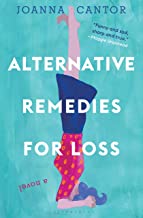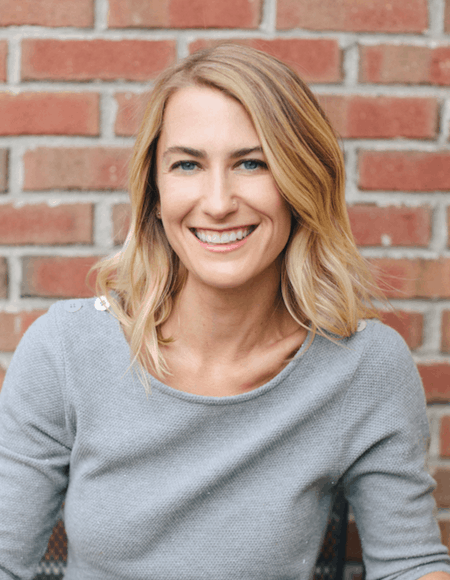Alternative Remedies For Loss by Joanna Cantor
This year, we’ve had some pretty standout books that have been published across the genres, but debut author Joanna Cantor’s novel Alternative Remedies For Loss has become one of the most talked about and beloved books, even though it was released just a few weeks ago. Though this is her debut, Cantor’s novel actually tackles some of the hardest things to write about clearly: the contradiction of life in your early 20s, where everything seems to be standing still yet happening too fast and all at once; grief and the feeling of permanent loss; and recovery, acceptance of our lives the way they are. And she manages to do all this effortlessly.
 Alternative Remedies For Loss focuses on 22-year-old Olivia, who, when receiving the news that her mother was dying, left Vassar and her future career plans to spend time with her mother while she still could. Now, just four months after her mother’s death, Olivia feels more alone than ever, as everyone is her family has seemed just fine moving on and forward. Her brothers have careers and partners, and her father has even begun dating again, inviting his new girlfriend to come on a family trip that Olivia had originally planned with her mother. Looking for a way to remedy her loss, Olivia throws herself into Manhattan’s media world, dating older men, and trying to put together a plan for adulthood without her mother there to help her. But a shocking discovery leads Olivia halfway around the world, where she must come to terms with her family and find her place in the complex world around her.
Alternative Remedies For Loss focuses on 22-year-old Olivia, who, when receiving the news that her mother was dying, left Vassar and her future career plans to spend time with her mother while she still could. Now, just four months after her mother’s death, Olivia feels more alone than ever, as everyone is her family has seemed just fine moving on and forward. Her brothers have careers and partners, and her father has even begun dating again, inviting his new girlfriend to come on a family trip that Olivia had originally planned with her mother. Looking for a way to remedy her loss, Olivia throws herself into Manhattan’s media world, dating older men, and trying to put together a plan for adulthood without her mother there to help her. But a shocking discovery leads Olivia halfway around the world, where she must come to terms with her family and find her place in the complex world around her.
BookTrib got to interview Joanna Cantor, where we talked about inspiration the book, yoga, writing your early 20s, and the question she’s never been asked before.
BookTrib: In this book, 22-year-old Olivia has to come to terms with the loss of her mother, which she tries to do in some not-so-typical ways. How did the idea for this book first come to you?
 Joanna Cantor: I first wrote a short story about a family traveling to India after the matriarch’s death, told from multiple perspectives. My story was modeled on a chapter of Jennifer Egan’s A Visit from the Goon Squad called “Safari,” which I’d first read in the New Yorker. When I finished the story, I was still interested in the characters, and decided to see if they could sustain a novel. I didn’t have an overall arc at first, but I kept writing about the Harris family in the year after Eleanor Harris’s death until a plot emerged.
Joanna Cantor: I first wrote a short story about a family traveling to India after the matriarch’s death, told from multiple perspectives. My story was modeled on a chapter of Jennifer Egan’s A Visit from the Goon Squad called “Safari,” which I’d first read in the New Yorker. When I finished the story, I was still interested in the characters, and decided to see if they could sustain a novel. I didn’t have an overall arc at first, but I kept writing about the Harris family in the year after Eleanor Harris’s death until a plot emerged.
BookTrib: One of the things that this book does so well is really understand and convey that feeling of being in your early twenties: where everything is suspended, but happening all at once, so to speak. Was this something you found easy to write?
JC: Yes! It helped that I was 27 when I started writing about Olivia, so I was closer to this very up-in-the-air life moment. But even looking back safely from my 30s, I can still recall that feeling so well: that you are supposed to have a lot more figured out, and that every move you make could determine your entire future. I found it paralyzing. Olivia is more of a doer than I was—she acts impulsively, and deals with the consequences later.
BookTrib: This is your debut novel – what are some of the surprises that you found when you started writing this book?
JC: When I began this book, I was in an MFA program and relatively new to writing fiction. Writing scenes of conflict was very challenging for me. My impulse was to make my characters good and likeable—to make their actions defensible. When I began to force myself to write more tense and dramatic scenes, I was surprised by how much I enjoyed it. It actually became addictive!
Another surprise was that I conceived of the novel as being told from multiple points of view. But when I finished a first draft, it was clear that this needed to be Olivia’s story; her chapters were the most dynamic and emotionally resonant. I don’t regret a moment of the time I spent getting to know the other characters, though—I think it helped the book.
BookTrib: Olivia, the main character, goes through an evolution throughout the book. Can you tell us a little of what it was like to write her character? Did she change the way you thought she would?
JC: I had a lot of fun writing about Olivia. She’s a feisty character who doesn’t take things lying down. That’s not to say there weren’t challenging moments—several times I had to step back and do some reflecting or reading (such as Cheryl Strayed’s Wild) to connect with what Olivia might be feeling after losing her mother in her early 20s.
As I mentioned, I began writing about Olivia and her family without an overall picture of the novel in mind, so I’m not sure I envisioned exactly how Olivia would evolve. Fairly early on, I knew the novel would take place over approximately one year, which gave me a sense of about how much change would be possible for Olivia and the other characters, but in terms of specifically what that change would be, I felt my way into it.
BookTrib: You’re a yoga teacher, the practice of which is something found throughout the book and actually pretty vital to the story. What made you want to add in this element?
JC: I like it when fiction writers introduce a specific world about which they have some expertise. It’s fun as a reader to feel like a voyeur, snooping around a subculture. Yoga was also on my mind while I was working on Alternative Remedies for Loss (I became a yoga teacher while I was writing the novel). I didn’t set out to write about yoga, but it began to seem that there was a place for it in this story—not as the solution to grief or Olivia’s difficulties, but as one of several worlds she dips her toes in as she makes her way towards adulthood.
BookTrib: Is there one thing in particular that you really want people to take away from this book?
JC: I’ll be happy if readers take away anything that has meaning to them! But if I have to narrow it down, I would say the themes that are most important to me are that grief can really be a lonely, individual experience; even within a family, siblings or a parent and child can have a very different process after a death. But on the more positive side, I believe families can be resilient enough to survive this difficult, lonely period after a loss, and come back together with perhaps even more love and understanding than they had before.
BookTrib: What are some of the books that you love?
 I love 19th and early 20th century novels of manners by Edith Wharton, Jane Austen, and Henry James, and I also am drawn to contemporary novels that to my mind come out of this tradition in some way, such as The Emperor’s Children by Claire Messud, Maggie Shipstead’s Seating Arrangements, or Stephanie Danler’s Sweetbitter. I am a huge fan of Jennifer Egan’s work; I’ve turned to her novels again and again for inspiration and instruction. A few highlights from my last year of reading were Rachel Khong’s Goodbye, Vitamin; Katherine Heiny’s Standard Deviation; and Tayari Jones’s An American Marriage.
I love 19th and early 20th century novels of manners by Edith Wharton, Jane Austen, and Henry James, and I also am drawn to contemporary novels that to my mind come out of this tradition in some way, such as The Emperor’s Children by Claire Messud, Maggie Shipstead’s Seating Arrangements, or Stephanie Danler’s Sweetbitter. I am a huge fan of Jennifer Egan’s work; I’ve turned to her novels again and again for inspiration and instruction. A few highlights from my last year of reading were Rachel Khong’s Goodbye, Vitamin; Katherine Heiny’s Standard Deviation; and Tayari Jones’s An American Marriage.
BookTrib: What’s one question you’ve never been asked, but have always wanted to answer?
JC: What is the point of fiction? Does it need to have a moral or message?
I read fiction to be transported out of my life and my own familiar set of concerns. It’s partially escapism (which is why I’m drawn to character-driven fiction rather than more conceptual work), but it’s also the way I deepen my understanding of people and the world. I don’t think fiction can’t succeed unless the characters feel three dimensional; their motivations and emotions need to be believable, even if technically they’re “made up.” Great fiction makes me think about human character while I’m also soaking up the pleasure of a good story—for me, that’s more than enough without an explicit moral or message. When authors subtly weave in a message without sacrificing character or story, it can be powerful. But if what you’re trying to say could be reduced to a thesis statement, I don’t think you necessarily need to be writing fiction—you can get your message across in an essay or an article instead.
Alternative Remedies For Loss is now available for purchase.
Buy this Book!
Amazon




